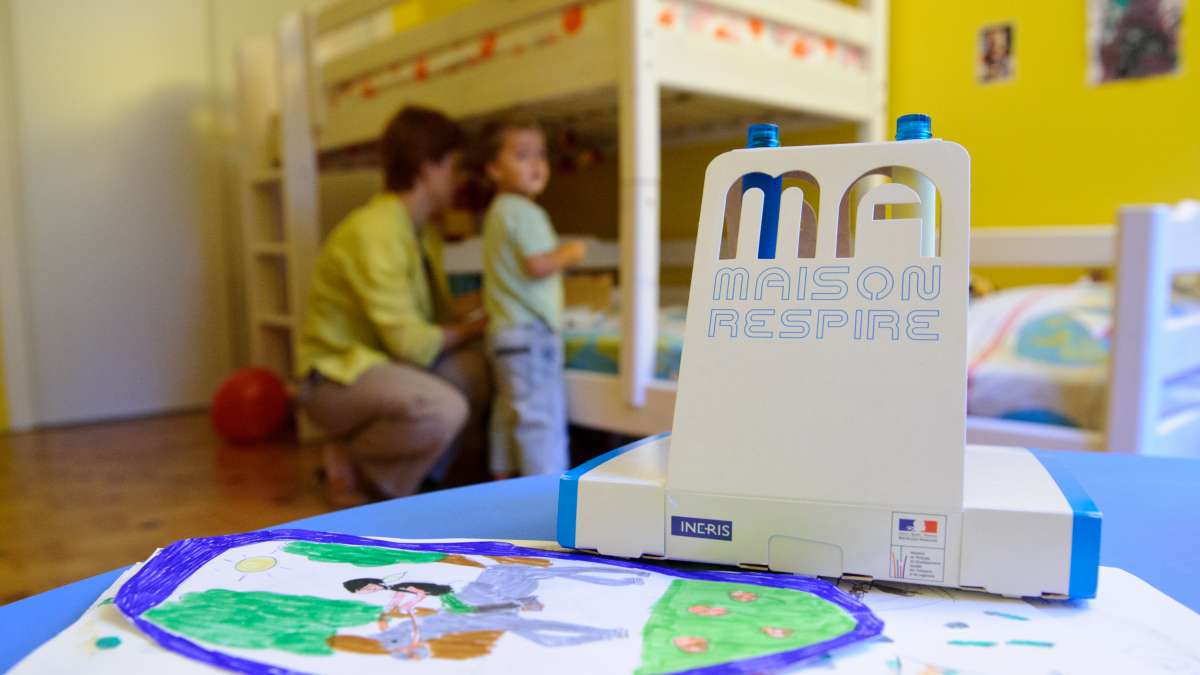
The aim is to give elected representatives solutions to act and make a long-term improvement to air quality in their buildings.
This book of solutions for local authority personnel is based on a partnership, sharing the experiences and knowledge about public policy and local players that Cerema, Villes de France and Véolia have acquired. It reveals the issues, suggests how to develop a proper local policy for indoor air quality and also describes some local projects.
Indoor air: a true public health challenge

This subject is in the news once more, since the health measures and lockdown have highlighted the advantages of high quality indoor air. In an assessment dated 14 October 2020, the French national public health council recommends "indoor air should be regularly renewed, and the inflow of fresh air must if possible be increased", in order to reduce risks associated with the coronavirus.
Indeed, contrary to commonly held perceptions, indoor air can be much more polluted than outdoor air, while we spend roughly 80% of our time indoors.
In addition, it is now mandatory to monitor indoor air quality in certain particularly sensitive public buildings (crèches, schools, day nurseries, etc. ), and to implement action plans to improve indoor air quality.
This book of solutions underlines the major public health issues linked to indoor air quality in buildings which are increasingly well insulated, as well as the regulations concerning public buildings.
It is organised in four sections. It sets out the means of action available to elected representatives to improve indoor air quality in a building, town or city. It also gives examples of municipalities that have set up actions in crèches and schools, swimming pools and also hospitals (in particular the university hospital in Guadeloupe where Cerema has carried out an appraisal):
-
Why should we be concerned about indoor air quality?
-
How can an elected representative conduct an “indoor air quality” policy?
-
Feedback
-
True or False, examining some preconceptions.
A guide bringing together the complementary experiences of the 3 partners.
The three partners have worked together to convey their complementary outlooks on the subject of air quality:
-
Cerema is a public body whose purpose is to support public policies. It is present in every region, and possesses trans-sectoral and multi-disciplinary expertise to contribute to overcoming the challenge of sustainable development in the regions. “Measuring business-related pollutants, raising awareness about best practice, and setting up or changing a ventilation system: Cerema’s experts support local authorities and all property asset managers to set up solutions to improve quality of life in buildings”, Pascal Berteaud, Director General of Cerema.
-
The Villes de France association brings together local elected representatives, and assists towns with between 10,000 and 100,000 inhabitants and their suburbs, especially on the themes of attractiveness of regions and ecological transition. “Our association delivers concrete support measures to its members. In this book of local solutions it informs them about tools and best practice to improve air quality in our public buildings. This subject has been put in the spotlight due to the Covid 19 crisis, and is a major challenge for our citizens’ health and quality of life” , Caroline Cayeux, President of Villes de France.
-
Veolia assists local authorities in the key areas of public health and quality of life. Faced with air pollution, the greatest cause of environmental mortality in the world, Veolia is deploying innovative solutions: “To guarantee good air quality inside buildings, Veolia offers its customers indoor air performance contracts. This fulfils a growing societal demand and guarantees that we are able to offer occupants a healthy indoor environment”, Sabine Fauquez-Avon, President of Veolia’s Air Expertise Cluster

